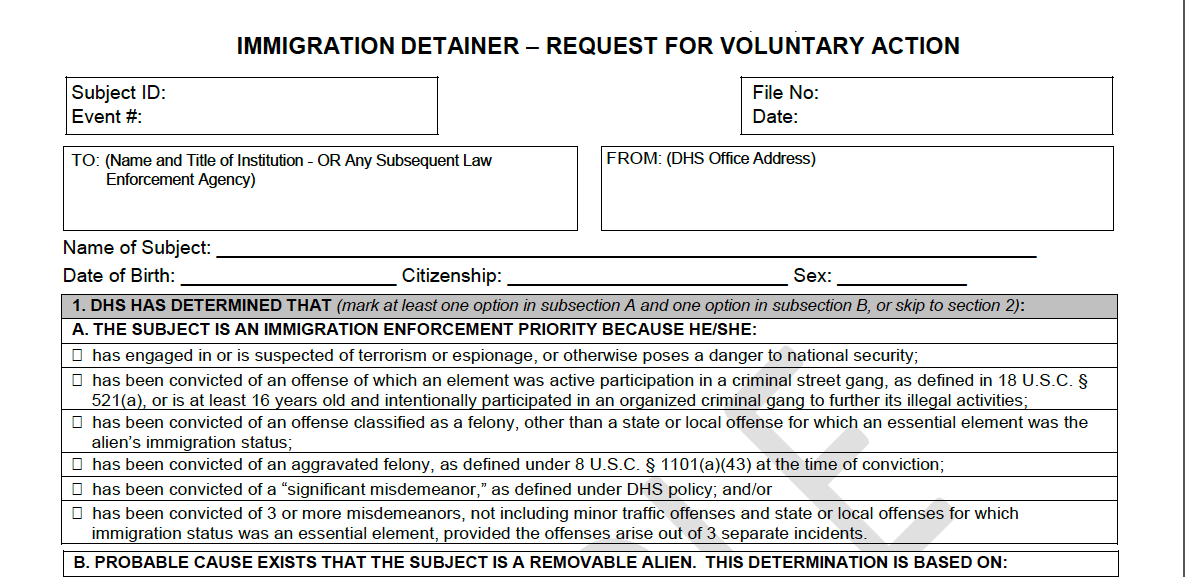USCIS had recently warned about a new scam, targeting employers. Employers received scam emails requesting Form I-9 information that appear to come from USCIS.
Please note that employers are not required to submit Forms I-9 to USCIS. Employers must have a Form I-9, Employment Eligibility Verification, for every person on their payroll who is required to complete Form I-9. All of these forms must be retained for a certain period of time. Visit I-9 Central to learn more about retention, storage and inspections for Form I-9.
These scam emails come from a fraudulent email address: [email protected]. This is not a USCIS email address. The body of the email may contain USCIS and Office of the Inspector General labels, your address and a fraudulent download button that links to a non-government web address (uscis-online.org). Do not respond to these emails or click the links in them.
If you believe that you received a scam email requesting Form I-9 information from USCIS, report it to the Federal Trade Commission.
If you are not sure if it is a scam, forward the suspicious email to the USCIS webmaster. USCIS will review the emails received and share with law enforcement agencies as appropriate.
Payments by Phone or Email
USCIS will never ask you to transfer money to an individual. They do not accept Western Union or PayPal as payment for immigration fees. In addition, USCIS will never ask you to pay fees to a person on the phone or by email. You can pay some immigration fees online only if you use myUSCIS.
Remember:
- When you send your application by mail, pay your immigration fees with a check or money order. Write “Department of Homeland Security” on the “Pay to the Order of” line.
- Applying for U.S. citizenship? You can now pay fees for Form N-400, Application for Naturalization, with a credit card. To pay Form N-400 fees with a credit card, you will need G-1450, Authorization for Credit Card Transaction
- You can also pay with a credit card in any domestic field office that accepts payments. You can learn more on our Paying Immigration Fees Web page
The U.S. Department of State (State Department) manages the Diversity Visa Program, also known as the Lottery Visa or Green Card Visa. The State Department will never email you about being selected in the Diversity Immigrant Visa Program.
Go to the State Department’s website to read more about how they notify selectees.
Scam Websites
Some websites claim to be affiliated with USCIS and offer step-by-step guidance on completing a USCIS application or petition. Make sure your information is from uscis.gov or is affiliated with uscis.gov. Make sure your information is from uscis.gov or is affiliated with uscis.gov. Make sure the website address ends with .gov.
Please remember that USCIS will never ask you to pay to download USCIS forms. USCIS forms are always free on uscis.gov website.
Scams Targeting Foreign Students.
If you are an international student outside of the U.S. and want to come to the U.S. for education, make sure you are applying to an accredited college or university. Look for your school on the Council for Higher Education web page.
You must have a Form I-20, Certificate of Eligibility for Nonimmigrant Student Status, to travel. After you are accepted into a Student and Exchange Visitor Program (SEVP)-certified school, a designated school official will either give you:
- Form I-20, Certificate of Eligibility for Nonimmigrant (F-1) Student Status –For Academic and Language Students, or
- Form I-20, Certificate of Eligibility for Nonimmigrant (M-1) Student Status –For Vocational Students
Additional information on the Form I-20 is available on DHS’ website studyinthestates.dhs.gov or on our website on the Students and Employment page.
“Notarios Públicos” Scam
In many Latin American countries, the term “notario publico” (which is Spanish for “notary public”) means something very different than what it means in the United States. In many Spanish-speaking nations, “notarios” are powerful attorneys with special "extra" legal credentials. In the U.S., however, notary publics are people appointed by state governments to witness the signing of important documents and administer oaths. A notario publico is not an attorney, and is not authorized to provide you with any legal services related to immigration. Some attorneys might be notaries, but not all notaries are attorneys. Only an attorney or an accredited representative working for a Department of Justice (DOJ)-recognized organization can give you legal advice.
Read more here.






 RSS Feed
RSS Feed